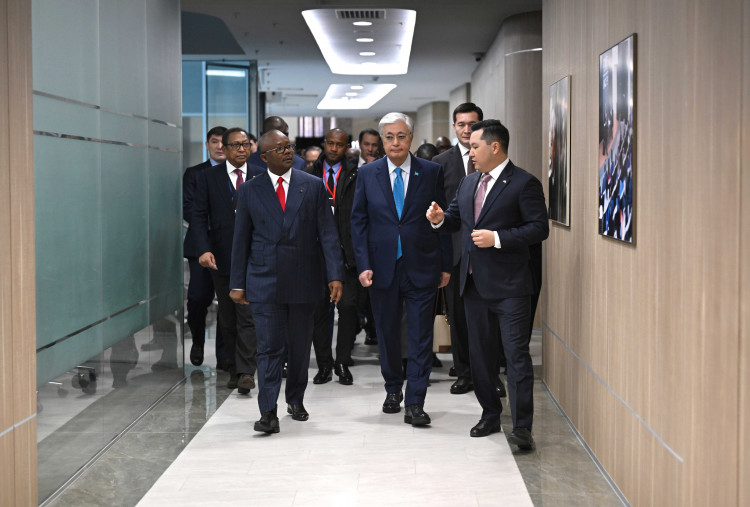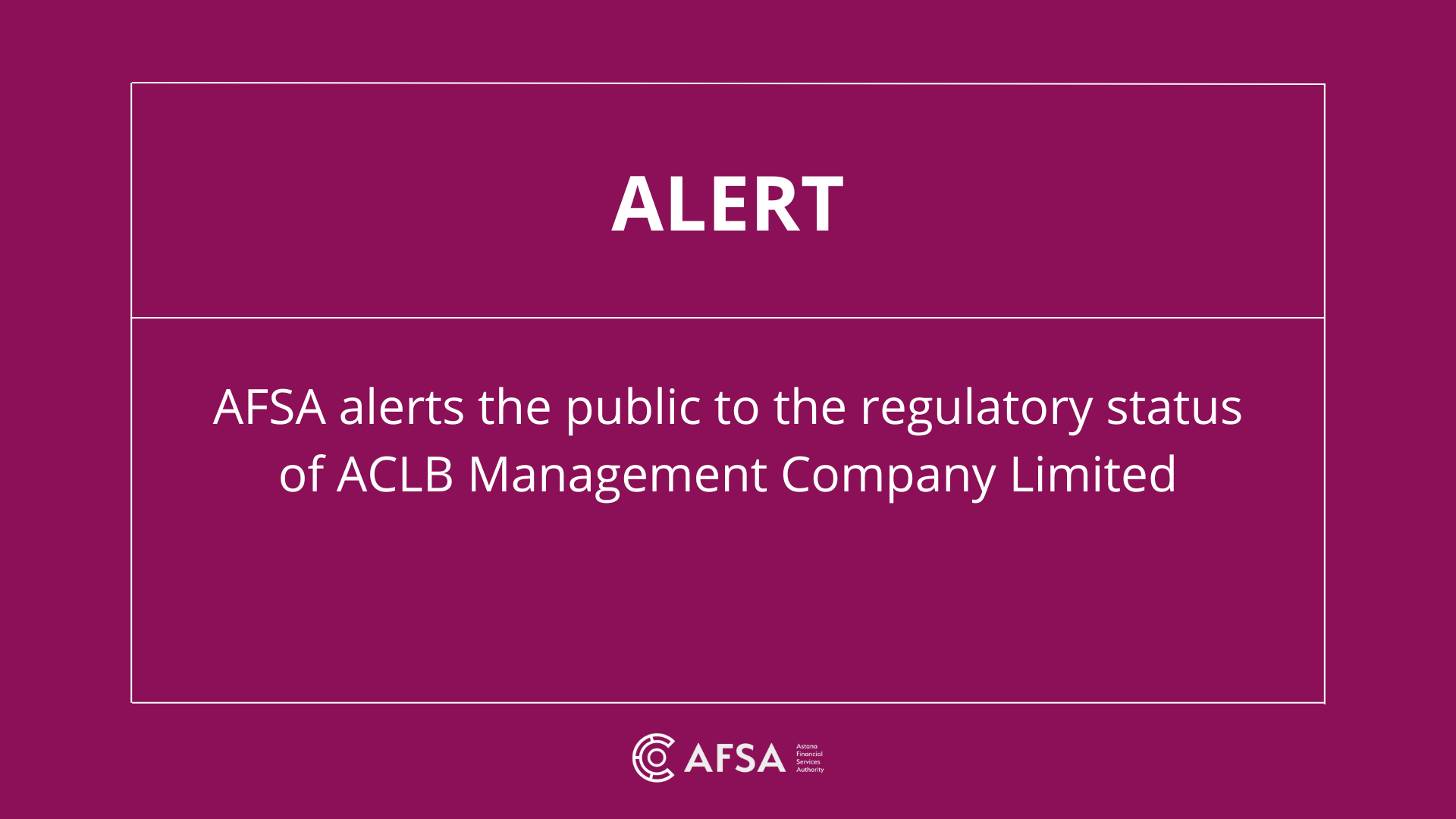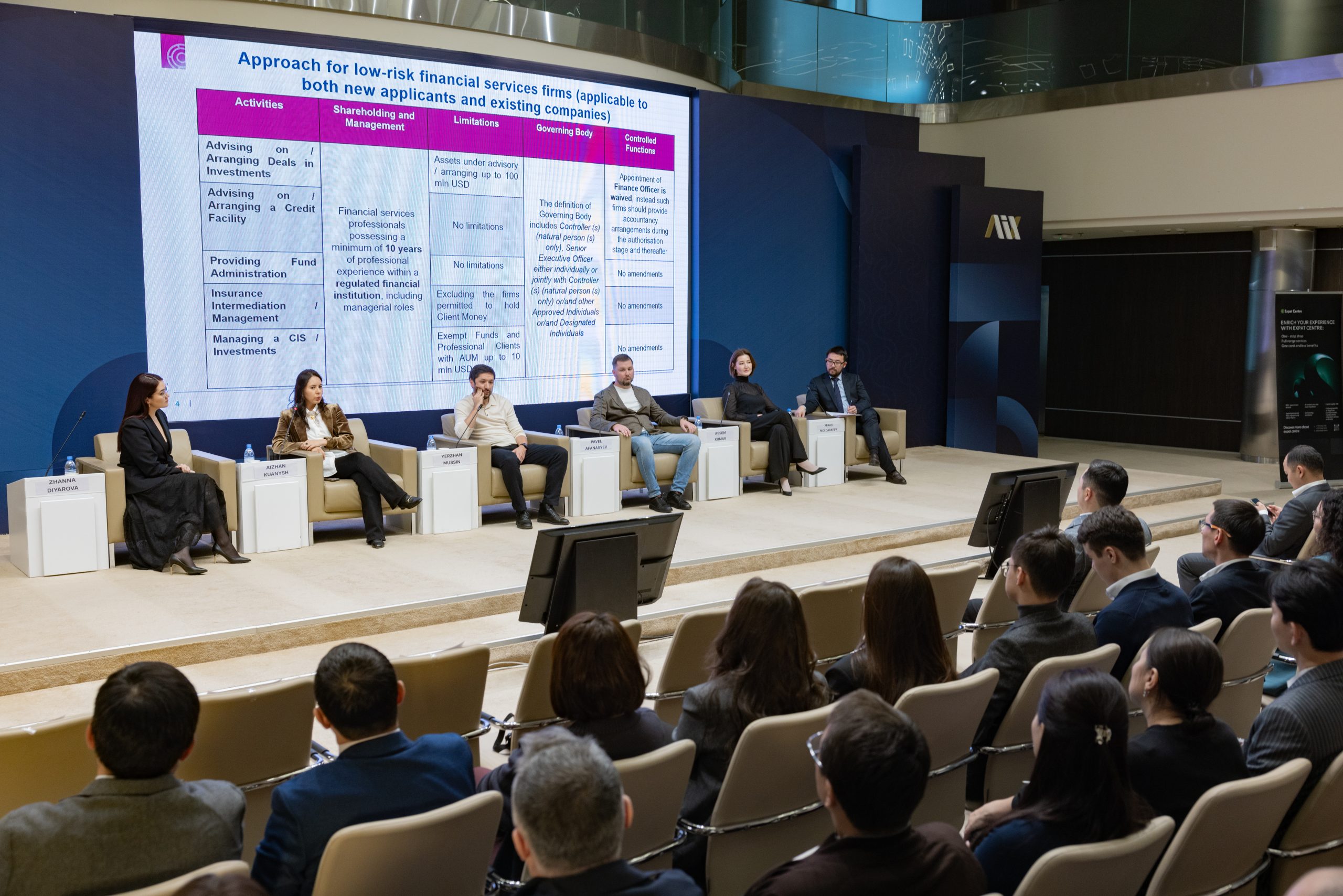The Astana Financial Services Authority (AFSA) and the National Digital Assets Commission of El Salvador (CNAD) in agreement to enhance cooperation

The Astana Financial Services Authority (AFSA) and the National Digital Assets Commission of El Salvador (CNAD) signed a Memorandum of Understanding (MoU) in May 2024, aimed at enhancing cooperation, mutual assistance, and the facilitation of information exchange within the digital assets markets across their respective jurisdictions. This brings AFSA’s total of international agreements with fellow regulators to 54.
The document signifies the commitment of both regulatory bodies to strengthen their collaboration. The main objective is to promote cross-border cooperation within the financial industry, foster consistent high-level communication, and facilitate the sharing of information regarding financial markets.
The Astana International Financial Centre actively supports innovations and promotes the development of innovative approaches in the financial sector, contributing to sustainable growth and progress. In particular, significant efforts have been made in recent years to create a digital assets ecosystem in the AIFC and Kazakhstan. As an example, a pilot project that tested fiat gateways between AIFC-licenced cryptoexchanges and Kazakhstan’s commercial banks brought a total of transactions within the pilot to an amount worth around 240 mln USD and served as a foundation for a number of regulatory initiatives, such as Rules on interaction of Digital Asset Service Providers and commercial banks of Kazakhstan, a Rulebook on Digital Asset Activities, the Security Token Offering Framework, and the Stablecoins Framework.
To further test new products and services, AFSA offers its FinTech Lab (regulatory sandbox) platform to experiment with novel projects in a secure way. As of today, there are 18 participants in the sandbox, where the majority (14) are digital asset service providers. Trading volume of Digital Asset Services Providers in 2023 stood at 320 mln USD, while in the first quarter of 2024 this figure reached 232 mln USD.
AFSA Chief Executive Officer Nurkhat Kushimov said: “The rapid flow of goods, services, people and finance across borders is testing the effectiveness and the capacity of domestic regulatory frameworks. Combined with increased globalisation and digitalisation, this pace of development presents policy makers and regulators with challenges that are difficult to deal with in isolation. Regulatory cooperation helps to bridge the gaps and align regulations for faster and safer transactions.”
Juan Carlos Reyes, president of CNAD, believes that signing this type of MoU is an important milestone in a borderless, globalised economy. “We see AFSA as a pioneer in the digital assets regulatory industry, and the signing of this MoU is an important step in strengthening global regulatory authorities. Given that we work with technology that transcends geographical barriers, it’s crucial to recognise that the regulated businesses can impact each country differently. By creating agreements like this, we can ensure the adoption of best practices, identify bad actors, and, most importantly, achieve financial transparency as per global and each countries’ national requirements.”
CNAD has been instrumental in positioning El Salvador as a leader in the digital economy. Through its rigorous regulatory framework, CNAD has successfully cultivated a secure and transparent digital asset market, contributing to the nation’s financial inclusivity and economic dynamism. Notable successes include the launch of the $ESOY public offer by E-GRAINS S.A. DE C.V[1]., the approval of the innovative “Volcano Bond[2].” The commission through its sandbox project has approved over one billion dollars of real-world asset (RWA) tokenisation.
As an authoritative body for digital asset regulation, CNAD has established a comprehensive public registry, ensuring that all market participants adhere to the highest standards of operation. Its proactive approach in licensing and oversight has deterred fraudulent activities, safeguarding consumer interests and the integrity of the financial system. The commission’s commitment to fostering innovation and collaboration has been pivotal in advancing El Salvador’s digital asset sector.
Reference:
The Astana Financial Services Authority (AFSA) is the independent regulator of the Astana International Financial Centre (AIFC), which is established in accordance with the Constitutional Law of the Republic of Kazakhstan “On the Astana International Financial Centre” for the purposes of regulating financial services and related activities in the AIFC. AFSA administers the AIFC Regulations and Rules and is responsible for the authorisation, registration, recognition and supervision of financial firms and market institutions in the AIFC.
The National Commission of Digital Assets of El Salvador (CNAD) serves as a pivotal government institution entrusted with the oversight and regulation of the digital asset landscape in El Salvador. This encompasses cryptocurrencies, tokens, and other digital financial instruments. CNAD’s primary objective is to uphold security, transparency, and trust within the digital asset market, thereby fostering financial inclusivity and driving economic advancement.
Over 2,700 firms from 78 countries are registered in the AIFC. These firms provide banking, insurance, investment, professional and other services. The range of financial services offered at the AIFC is comparable to the list of services available in long-established financial centers of the world, such as London, Hong Kong, Singapore, Dubai and others. www.afsa.kz
The Astana International Financial Centre (AIFC) is an independent jurisdiction with a favourable legal and regulatory environment and a developed infrastructure for starting and doing business, attracting investment, creating jobs and developing Kazakhstan’s economy. https://aifc.kz/
Contact information:
Public Relations and Communications Division of AFSA: +7 (717) 264 73 43; +7 7172 61-37-45 email: [email protected]
[1] the issuance of $ESOY tokens backed by soybeans.
[2] the use of geothermal energy from a volcano to power Bitcoin mining.








